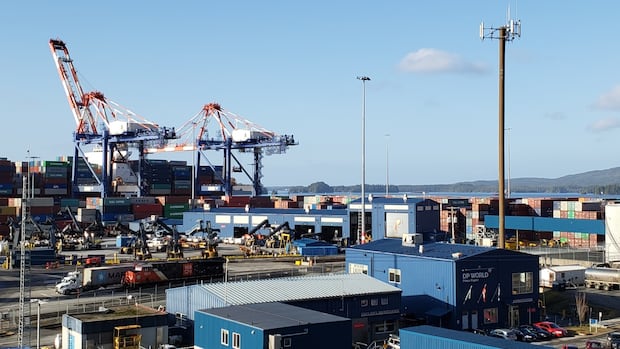A major B.C. exporter has announced it is ready to invest $750 million in a new liquefied petroleum gas (LPG) export facility in Prince Rupert, B.C. — though it still faces a legal battle against the Port of Prince Rupert in order for it to move ahead.
Additionally, Trigon Pacific Terminals CEO Rob Booker is urging the federal government to expedite the approval process for the project, arguing it is in that national interest against the backdrop of a trade war with the United States that has Canada seeking new markets for its oil products.
Booker says the company’s board has given full spending approval for the project, which could be operational as soon as 2029 and would focus on selling product to Japan, South Korea and India, rather than the United States.
If it moves ahead, it would have an annual capacity of 2.5 million tonnes per year.
“I think this project clearly aligns with federal priorities with respect to Canadian energy security, Canadian export focus away from the U.S.,” he said. “It’s a win-win-win, in that it’s shovel-ready and ready to go and has the money to do it.”
Trigon operates the largest export terminal at the Port of Prince Rupert, the third-busiest port in Canada. Its focus is primarily on metallurgical coal but it is seeking to diversify into liquefied gas and other products destined for overseas markets.
The project is backed by both the Lax Kw’alaams and Metlakatla First Nations, who have equity positions in Trigon, as well as the Albertan government, where much of Canada’s petroleum is produced.
Brian Jean, Alberta’s minister of energy and minerals, called the investment decision “great news for Canada and Alberta.”
Project could be blocked by exclusivity deal
However, aside from regulatory hurdles, Trigon is also facing a legal battle in order to proceed.
Last year, the company sued the Port of Prince Rupert, arguing the port is blocking its attempt to change its business model to include liquid gas exports.
The Port of Prince Rupert says Trigon Terminals can’t export liquid propane to Asia because two other companies have exclusive rights to do so. Trigon, which is trying to move away from exporting thermal coal, is now suing the port authority over the matter.
However, the port has an exclusivity deal with the exporters AltaGas and Vopak who have approved their own $1.35 billion export facility in Prince Rupert and who say part of that decision was based on the deal, which provides them with security in exchange for the investment of time and money needed to advance the project.
The Port of Prince Rupert, for its part, has filed a countersuit against Trigon, claiming the initial lawsuit is damaging the port’s reputation as a reliable partner and that violating exclusivity could harm future deals.
Asked about those lawsuits, Booker said he is “confident there are several paths the federal government can take to make this a win for everyone.”
Emissions from fossil fuel production rising
The federal government has not weighed in on the project, but last week the government of Prime Minister Mark Carney introduced new legislation aimed at fast-tracking major projects, with five criteria to determine whether they are in the “national interest.”
Those criteria include the project’s likelihood of success, whether it would strengthen the country’s resiliency and advance the interests of Indigenous Peoples, and whether it would contribute to economic growth in an environmentally responsible way.
However, some environmental groups have expressed concern that the threats from the United States are being used as a way to force through projects that would previously have been blocked due to their environmental impacts.
Those concerns come as much of western Canada, including parts of B.C., are once again blanketed by smoke from wildfires that have worsened, in part, because of rising temperatures.
While Canada’s emissions have dropped slightly, the most recent analysis from the Canadian Climate Institute found the progress was largely offset by an increase in emissions from oil and gas production, which as of last year’s analysis, made up 31 per cent of Canada’s national total.

